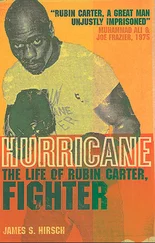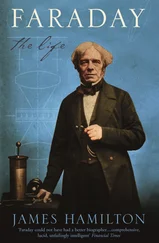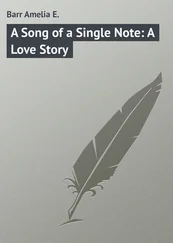“Don’t be cute,” says the FBI agent.
The man pushes away the carpet that had been under his feet, and then pulls open the trapdoor that had been under the carpet. Viola follows the FBI agent down a metal staircase. The room beneath is filled with bins of VHS tapes, each of them, so far as Viola can tell, labeled in the same manner as the tapes she found in the FBI agent’s suitcase. Men, some dressed in suits like the FBI agent’s, others in uniform, scour the bins, shuffling through the videos, examining each of the labels. This is the black market, Viola thinks. The guy who let us down here, he was probably a member of the mafia or some other criminal organization. I suppose they exist everywhere. They serve a useful function in society. All of the other men in here, they’re part of the official power structure, but they still need the mafia in order to pass these videos back and forth. Viola thinks about stealing one of the FBI agent’s videos when she goes back to the motel room in Danville, sometime when his back is turned, just out of curiosity. But does she really want to see a video of the girl some two-star general’s fucking? It’s not really her thing, she decides. Though she doesn’t have a problem with it, in the abstract. She thinks about the two-star general watching a video of her. She wonders if anyone in here has already seen a video of her. She tries to catch their eyes. Nothing.
After a little while Viola follows the FBI agent back upstairs and out the trapdoor.
“Tell me if you see anyone you recognize,” the FBI agent says, on the way back to the car.
“Why would I recognize anyone?”
“It was just a question.” They get back into the car and Viola gives the FBI agent a long look. “Don’t look at me like that,” he says, and they drive off.
Viola and the FBIagent have dinner at a sushi restaurant on the near west side. The FBI agent is saying goodbye to a friend of his, a white-haired but healthy older gentleman who is retiring from his post as judge. He had presided for more than a decade over one of the most prestigious of the secret courts.
“Many people believe that today’s secret courts, the ones that deal with Terror, are the only secret courts there have ever been,” he says. “But there are other courts, much older, much more secret, that deal with, for example, matters of the heart.”
“Like what?” Viola asks.
“Well I can’t go into any detail, really,” the judge says.
They order a round of plum wine. It’s stronger than Viola was expecting. They order another. Music is playing in the background, a cover of “Volare” using traditional Japanese instruments. The judge recognizes the band. He’s been interested in their work for some time, and he talks about it, a little.
“I don’t really like music anymore,” Viola says. “All of the music I used to like has too many feelings attached to it.” She looks down at her nigiri and worries that that was a stupid thing to say. She worries that the white-haired judge will think she’s a sad sack. After a moment she says, to clarify, “Not necessarily bad feelings.” The judge nods at this, and Viola suddenly gets the idea that he’s very understanding about how people can be overwhelmed, listening to music they used to like. Perhaps he’s just very understanding in general. Viola looks at his hands. He has very sensitive, wise-looking hands. The FBI agent’s hands look sensitive, but they don’t look wise. They look something like a little boy’s hands. The judge’s hands are broader, more masculine, with red knuckles and wiry silver hairs. They make her think of the protagonist’s friend in Crime and Punishment , who was big but very understanding of others; she can’t remember his name, just now.
“What do you plan to do once you retire?” Viola says.
“I am retiring to study the secret body of case law,” the judge says. “The secret courts operate on a hierarchy of secrecy,” he explains. “For most of my career, I thought that I was presiding over the most secret court. Each court believes that, that it’s the most secret. Which is absurd, of course. There’s always a more secret court. I know that now.”
“Always?” Viola asks.
“Theoretically.” Viola wonders how he could know this, if he was on a secret court himself. Is there some absolute position from which each of the secret courts might be viewed, and to which each of the secret courts would be relative? Viola asks the judge about his family.
“They’re doing very well, thank you.”
“Are you looking forward to spending more time with them?”
The FBI agent and the judge talk about certain aspects of the secret body of case law. “A particularly interesting case is when a court at one level of secrecy learns of the existence of a court at a higher level of secrecy,” the judge says. “Such cases function, mathematically, you might say, to create a series of imaginary or ‘shadow’ courts. Say for instance that court d learns of the existence of court c , which until that point had been operating at a higher level of secrecy. The court that had been court d , then, is no longer court d , rather now it is some other court, operating at a higher level of secrecy than court c . Call it court b . So court b now knows about court c , and court c still knows about court d . But what does court c know if it knows court d ? It knows about a court which no longer exists — a court which is like court b in every respect except for one (and that one is precisely the most crucial): court b is a level of secrecy above court c , court d is not. Court d is therefore a shadow court, cast by court b . Each of them operates at its own level of secrecy within the hierarchy, and though their actions, to an outside observer — say, court a —appear the same in all respects, the meanings of those actions are radically different.”
The judge draws a diagram on a napkin:

“Ultimately, the law is pure form, devoid of content,” the judge tells the FBI agent. “What we are fighting for is not a thing, but a shape.”
A little later, the judge says: “My wife has not been very understanding. We’ve had some problems. We had two kids, boys, but neither of them lives in Indiana anymore. I think one of them moved to Seattle? He was a designer. Web designer. We’re not really in touch anymore. I think they both secretly call my wife, that they stay in touch with her and tell her about their lives and so forth. She won’t talk to me about it.”
“That sounds horrible,” Viola says, putting her hand on his hand.
“She says I lost my chance with them a long time ago,” the judge says. Viola notices the FBI agent staring at her hand on the judge’s hand.
“Listen to me,” the judge says. “Going on like this. We’re celebrating, aren’t we?”
The judge orders a round of sake on the rocks for the table. “A thing a lot of people don’t realize about sake is that it’s a very versatile drink,” he says. The FBI agent and Viola and the judge toast to the judge’s future, and then they toast to the FBI agent’s future and Viola’s future. “You kids,” the judge says. “You fucking kids.” The judge orders another round for the three of them and gets his money out and puts it on the table.
“You’re not paying for this,” the FBI agent says. “We’re taking you out, remember?”
“I’m paying for whatever the hell I want to,” the judge says. “It’s my money and I want to spend it.” He toasts again to Viola and the FBI agent. “You fucking kids,” he says. “I bet you kids have some kind of fun together, don’t you?” The judge is holding Viola’s hand in both of his.
Читать дальше
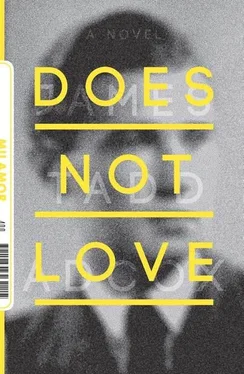



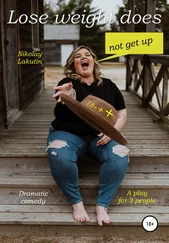
![Jakob Wassermann - Issue Does Not Exist],errors:{](/books/585068/jakob-wassermann-issue-does-not-exist-errors-thumb.webp)


